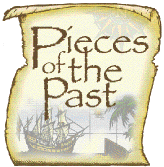

 |
|
 |
|
A New Era In Jamaica's History |
| |||||||
|
The Founding Of The People's National Party 1938 - THE TURNING POINT
In that year, workers around the island had recognized as their leader a tall, striking middle-aged man, with a shock of somewhat unruly hair that seemed merely a reflection of his unbridled energy. The leader of these
meetings and of the negotiations on behalf of the The Movement Towards Political Organization Meanwhile, his cousin, the renowned Oxford-educated Norman Manley from Roxborough, Manchester, who had mounted platforms to speak to workers upset about Bustamante's incarceration and attempted to keep the peace while he negotiated Bustamante's May release from jail, began to speak of the need for a political movement alongside the growing trade union one. This Manley believed was essential in order for Jamaica to achieve self-determination for Jamaicans. At a press conference in May, the tall, distinguished barrister announced that a number of committees were to be formed to propose solutions to debate ideas for Jamaica's development. It was these committees, he said, which would serve as the root of a genuine labour party. In this move towards national political organization Manley picked up on sentiments expressed as early as a decade before by skilled Jamaican orator Marcus Garvey who had attempted in his stirring public speeches and his US-based organization of the United Negro Improvement Association to better the condition of negroes everywhere. The events of 1938 were so monumentous that it was felt that a national political party had a better chance of survival as a result of the increased national awareness. Manley did not act
alone. Bustamante supported his efforts, but at that time was himself
consumed with the organization of the BITU. O.T. Fairclough, a Jamaican
who had managed a bank in Haiti and returned to his homeland to find the
only job he could get was as an accountant at the Water Commission, became
heavily involved impressing upon Norman the need for him to lead a
political party. There was also the "Public Opinion," a weekly paper
launched in 1937 by men such as Jamaica College history teacher Hedley
Powell Jacobs to put forward views on the question of self-government.
Jacobs was also a member of the National Reform Association (a group that
began agitating for self-government in March 1938 and is considered
ideologically to be a forerunner of the PNP) along with others such as Ken
Hill and Noel "Crab" Nethersole. Florizel Glasspole (who eventually became
Governor General 1973-1991) and future MP Wills O. Isaacs were also
heavily involved. Of course there was also Norman's wife, renowned artist
Edna Manley, whose art reflected ideals of self-determination. She
supported him in his actions but maintained that no matter how many urged
her husband to take up political leadership the final decision would
eventually be his and his alone.
A set of some 50 delegates were eventually selected and they appointed a steering committee of seven that included Norman Manley as chairman, accountant O. T. Fairclough as secretary, teacher H.P. Jacobs, lawyer N.N. Nethersole, Rev. O. G. Penso, architectural draftsman W. G. MacFarlane and Howard F. Cooke, a JUT representative (and the present Governor-General of Jamaica, the only member of that committee still alive). He remembers the excitement of the time and the almost missionary urge of wanting to effect change. The steering committee's task was to draft a founding constitution and prepare the party's formal launch slated for September 18, 1938 at the landmark Ward Theatre in downtown Kingston.
On the evening of September 18 the Ward Theatre was packed to capacity with the overflow spilling out onto North Parade. People of different political beliefs from different walks of life were present to listen to Norman Manley and British Labour Party MP, Sir Stafford Cripps, the guest speaker. Manley spoke of a new era in Jamaica's history, stressing the "tremendous difference between living in a place and belonging to it and feeling that your own life and your destiny is irrevocably bound up in the life and destiny of that place. Radical change was under way." In addition, he spoke of the need for collaboration between politics and trade unionism.
Sources: Bustamante, G.
(1997) The Memoirs of Lady Bustamante. Kingston: Kingston Publishers Ltd.
Black, C. V. (1983) The History of Jamaica. London: Longman Group UK Ltd.,
Sherlock, P. and Bennett, H. (1998). The Story of the Jamaican People.
Kingston: Ian Randle Publishers.
www.pnpjamaica.com/history_main Notes By
Dr. Rebecca Tortello | ||||||||
|
A
Jamaica Gleaner Feature originally posted September 23, 2002 Copyright 2001-2 . Produced by Go-Jamaica.com |